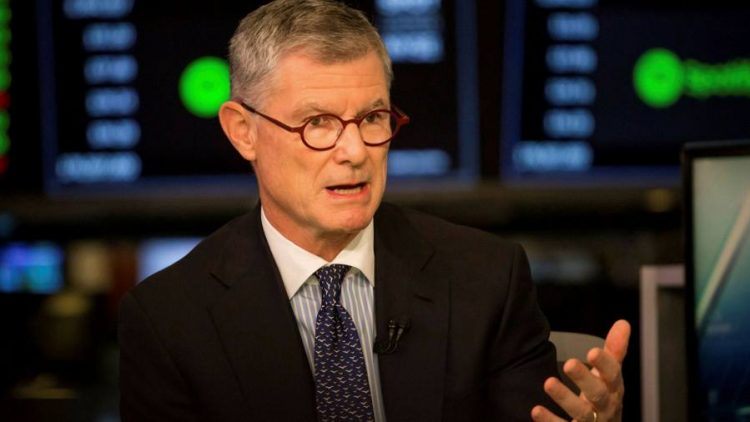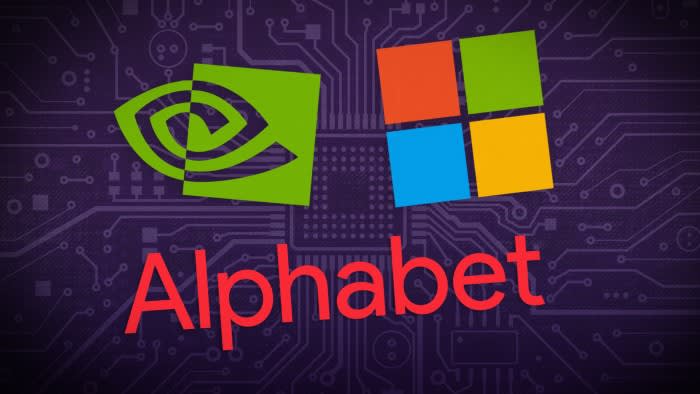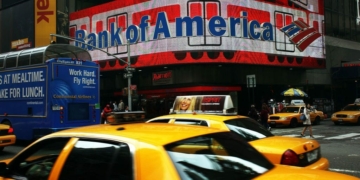Barry McCarthy wants to trim Peloton into shape.
The fitness bike company has been “grossly mismanaged” because of its previous chief executive John Foley’s “unbridled optimism” and a culture of excess, according to the activist investor who helped oust Foley this week.
Enter McCarthy, 68, a clinical number-cruncher who has built his four-decade career by operating as the adult in a room of unpredictable tech founders.
McCarthy this week took over as Peloton chief as part of a major restructuring at the company, which had been valued as high as $50bn in the depths of lockdowns, but has lost more than 70 per cent of its market value in the past year.
Reed Hastings, co-founder and chief executive of Netflix, is confident his former colleague can resuscitate the business. “If anyone can turn Peloton into Tesla, it is Barry,” Hastings told the Financial Times.
In typical McCarthy fashion, his first missive to Peloton staff was to “get real”.
“The hard truth is either revenue had to grow faster, or spending had to shrink,” McCarthy told Peloton employees this week in an email viewed by the FT. “We have to be willing to confront the world as it is . . . even when the truth is uncomfortable or inconvenient.”
So far, his reception has been mixed. Wall Street analysts rate him, but his words have not gone down well internally.
McCarthy sought to introduce himself at a virtual town hall on Wednesday. But he was met by rowdy, frustrated Peloton employees — including some of the 2,800 who had been laid off as part of the restructuring — who sent sarcastic messages in a chat-box for the event, according to screenshots seen by the FT.
McCarthy declined to talk to the FT for this story.
As finance chief at Netflix in its early days, McCarthy built the company alongside Hastings. In a now infamous story, Hastings and McCarthy in 2000 attempted to sell Netflix to Blockbuster, which was at the time the king of home video. But after flying to Blockbuster’s Texas headquarters with their offer, they were “laughed out of the room”.
McCarthy had the last laugh. Netflix would go on to topple the home video rental business and a decade later Blockbuster was bankrupt. “Barry is so brilliant that he figured out before the bond market that Blockbuster was going to blow their covenants,” Hastings quipped.
Netflix, meanwhile, went on to become one of the most successful stocks in recent memory, increasing its market capitalisation from $200mn at its 2002 public offering to $190bn today.
McCarthy later took on the top finance job at Spotify, where he built a reputation as a plain-spoken, numbers-oriented executive, earning the nickname “professor Barry” internally.
“Barry is no bullshit,” said a former colleague at Spotify. “People often want to spin things or use corporate-speak or hype something up. Barry will give it to you straight.”

Despite all his high-profile professional experience, very little is publicly known about McCarthy’s personal life. “He doesn’t share much,” said one former colleague who worked closely with McCarthy for several years.
What we do know is that he studied history at Williams College in Massachusetts and a few years later got his MBA from the University of Pennsylvania’s Wharton School, before starting his career trading mortgage-backed securities at Credit Suisse in the 1980s.
On LinkedIn, McCarthy has listed all 19 of his job titles since 1980, including a six-month stint at failed payments start-up Clinkle, a rare mis-step on his resume.
As Hastings recalled, McCarthy left Netflix in 2010 because he wanted to be a chief executive. With no path to the top job at Spotify either, McCarthy went into semi-retirement in 2019, leaving New York for California and sitting on the boards of companies such as Instacart.
Now at 68, he has finally achieved his goal — albeit at a company in turmoil.
After riding high during the pandemic as a way to exercise while stuck at home in lockdowns, Peloton has been hit by slowing sales, supply chain issues and public relations crises.
With the company valued at about $12.5bn, Amazon, Nike and others are circling it as a bargain buy.
McCarthy’s Spotify playbook may prove useful for Peloton, which has been criticised for its bloated expenses. When McCarthy joined Spotify in 2015, pressure was mounting from private equity group TPG and other early Spotify investors for a pay-off, either through an IPO or a sale. Chief executive Daniel Ek, then a 32-year-old tech entrepreneur from Sweden, did not have much experience with Wall Street.
Within two years McCarthy helped restructure Spotify’s costs to make its margins more palatable to investors, trimming its royalty payments to the music industry from 88 cents per dollar in 2015 to 79 cents in 2017.
McCarthy was also the architect of Spotify’s unconventional route to going public through a direct listing — again finding a way to save money by circumventing the traditional role of investment banks in an IPO.
“He’s very good at being cost disciplined,” summarised Reid Hoffman, co-founder of LinkedIn, who has known McCarthy since his Netflix days.
“Supply chain may be something where Barry needs support, but the fiscal side of things, what does the P&L actually look like? Barry is as good as they come.”
Additional reporting by Patrick McGee and Andrew Edgecliffe-Johnson















